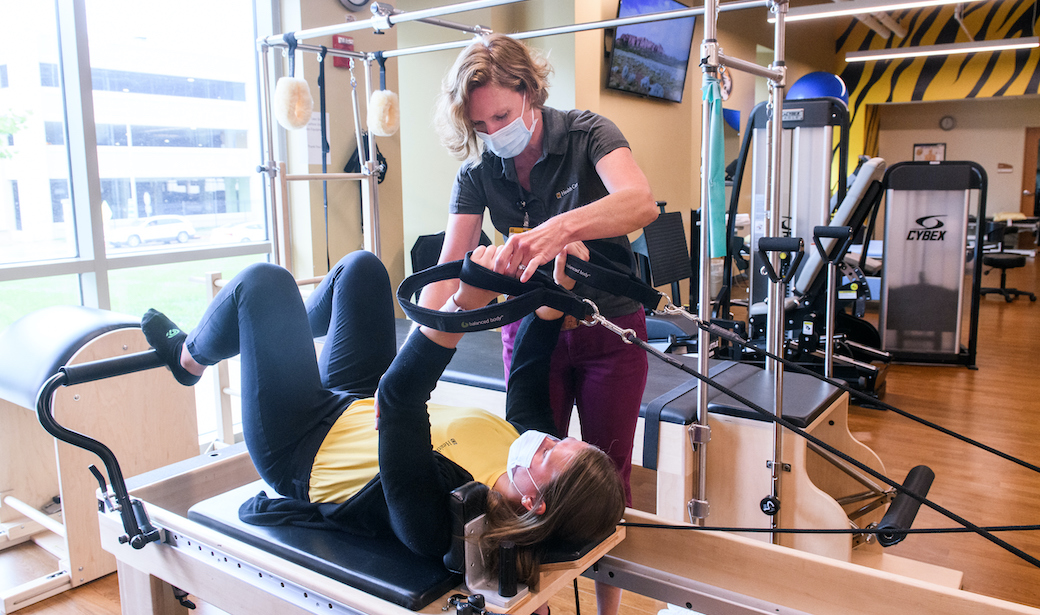When considering physical rehabilitation for surgery, most people think it happens after surgery is over and they’ve received clearance from their doctor to resume physically activity. But for many patients at the Missouri Orthopaedic Institute, the rehabilitation journey begins before they even enter the operating room.
To improve the overall surgical outcomes for orthopaedic patients, MU physicians and physical therapists have teamed up to create a program aimed at reducing inpatient hospital stays and improving long-term results, all while educating patients and eliminating presurgery fears.
“Many people with arthritis will lose strength and mobility as their condition gets worse. Sometimes they don’t even realize how much strength they have lost,” says orthopaedic surgeon James Keeney, MD. “The goal of participation with our joint replacement preoperative rehabilitation (prehab) program is to provide faster recovery and lasting results for our patients.”
Before a surgical procedure, doctors write a prescription for physical therapy. During therapy, patients can expect to improve their “baseline,” or the minimum standard the doctor believes is necessary to achieve before undergoing surgery. Patients will learn about their upcoming surgery, such as how they’ll feel after surgery and why, as well as exercises they can do right out of the operating room.
“When you put in the time to address all the concerns a patient may have before surgery, they come out on the other side knowing what their tasks are and are more motivated to push through,” says Becky Edwards, director of outpatient services for Mizzou Therapy Services.
“Your surgery outcomes are not just determined by the severity of your injury; it’s how you prepare for your surgery.” - Becky Edwards, director of outpatient services at Mizzou Therapy Services
Edwards explains that people often come out of surgery not only in pain but also unsure of what comes next. The goal of a preoperative rehabilitation program is to build up patients, physically and mentally, so they go into surgery strong and surgery is less complicated.
“We want our patients to be as ‘healed’ as possible before surgery so that we’re not adding insult to injury,” Edwards says. “Your surgery outcomes are not just determined by the severity of your injury; it’s how you prepare for your surgery. To use a sports analogy, you can’t perform well on game day if you don’t practice.”
Patients taking advantage of preoperative rehabilitation continue to work with the same therapist after their surgery to maintain a consistent level of care. Before leaving the hospital, patients will already have an outpatient therapy appointment set up and a plan toward recovery in place.
“This whole process is all about encouragement and education,” Edwards says. “Our therapists can take the fear out of what can be a scary situation for most people. That’s what we do best.”



